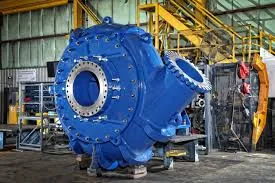English
- Afrikaans
- Albanian
- Amharic
- Arabic
- Armenian
- Azerbaijani
- Basque
- Belarusian
- Bengali
- Bosnian
- Bulgarian
- Catalan
- Cebuano
- Corsican
- Croatian
- Czech
- Danish
- Dutch
- English
- Esperanto
- Estonian
- Finnish
- French
- Frisian
- Galician
- Georgian
- German
- Greek
- Gujarati
- Haitian Creole
- hausa
- hawaiian
- Hebrew
- Hindi
- Miao
- Hungarian
- Icelandic
- igbo
- Indonesian
- irish
- Italian
- Japanese
- Javanese
- Kannada
- kazakh
- Khmer
- Rwandese
- Korean
- Kurdish
- Kyrgyz
- Lao
- Latin
- Latvian
- Lithuanian
- Luxembourgish
- Macedonian
- Malgashi
- Malay
- Malayalam
- Maltese
- Maori
- Marathi
- Mongolian
- Myanmar
- Nepali
- Norwegian
- Norwegian
- Occitan
- Pashto
- Persian
- Polish
- Portuguese
- Punjabi
- Romanian
- Russian
- Samoan
- Scottish Gaelic
- Serbian
- Sesotho
- Shona
- Sindhi
- Sinhala
- Slovak
- Slovenian
- Somali
- Spanish
- Sundanese
- Swahili
- Swedish
- Tagalog
- Tajik
- Tamil
- Tatar
- Telugu
- Thai
- Turkish
- Turkmen
- Ukrainian
- Urdu
- Uighur
- Uzbek
- Vietnamese
- Welsh
- Bantu
- Yiddish
- Yoruba
- Zulu
Telephone: +86 13120555503
Email: frank@cypump.com
Dec . 07, 2024 16:43 Back to list
horizontal chemical pipeline centrifugal pump
Understanding Horizontal Chemical Pipeline Centrifugal Pumps
In industrial applications, the efficiency and reliability of fluid transport play a critical role in operational success. Among various types of pumps, horizontal chemical pipeline centrifugal pumps have gained significant traction due to their robust design and effectiveness in handling a wide range of fluids, especially in chemical processing, oil and gas, and wastewater treatment. This article delves into the features, working principles, advantages, and applications of these specific pumps.
What is a Horizontal Chemical Pipeline Centrifugal Pump?
A horizontal chemical pipeline centrifugal pump is a mechanical device designed to move fluids through a pipeline by converting rotational energy into fluid energy. The pump consists of a rotating impeller housed within a casing, and is engineered specifically to handle chemicals and other fluids that may be abrasive, corrosive, or highly viscous. The horizontal orientation refers to the pump's positioning, which allows for easier installation and maintenance in industrial settings.
Working Principle
The operation of a horizontal centrifugal pump is based on the principles of centrifugal force. When the pump is activated, the motor drives the impeller, causing it to spin rapidly. This rotation imparts kinetic energy to the liquid, pushing it outward and converting the kinetic energy into pressure energy. The enhanced pressure forces the fluid to flow from the pump's discharge port, propelling it through the pipeline system.
The efficiency of these pumps is also affected by hydraulic balance and specific design features that minimize cavitation, which can otherwise lead to performance issues and equipment damage. By selecting appropriate materials to resist corrosion and abrasion, and by designing the impeller and volute to optimize fluid dynamics, manufacturers can enhance the reliability and lifespan of the pump.
Advantages of Horizontal Chemical Pipeline Centrifugal Pumps
1. Versatility These pumps can handle a variety of fluids, making them suitable for numerous applications, including transporting acids, solvents, and viscous liquids.
2. Ease of Maintenance The horizontal design usually allows for easier access to internal components, making it simpler for technicians to conduct maintenance or repairs without dismantling the entire system.
horizontal chemical pipeline centrifugal pump

4. Compact Design Compared to vertical pumps, horizontal pumps typically have a smaller footprint, making them suitable for installations in confined spaces.
5. Operational Stability These pumps usually operate smoothly, with minimal vibrations and noise, contributing to a safer and more pleasant working environment.
Applications
Horizontal chemical pipeline centrifugal pumps are widely utilized across various sectors. Some of their prominent applications include
- Chemical Processing They are commonly used to transfer chemical solutions, reactants, and by-products in the production of chemicals. The ability to handle corrosive substances makes them invaluable in this sector.
- Water Treatment In wastewater treatment plants, these pumps efficiently move water to different stages of treatment, ensuring environmental compliance and public health safety.
- Oil and Gas Industry They play a crucial role in transporting crude oil, refined products, and additives within pipelines and storage facilities.
- Food and Beverage Due to stringent hygiene standards, these pumps are designed to handle food-grade liquids without contaminating them, facilitating processing and packaging.
Conclusion
Horizontal chemical pipeline centrifugal pumps represent a vital component in modern industrial operations. Their efficiency, reliability, and versatility make them ideal for a plethora of applications, from chemical processing to wastewater treatment. Understanding their working principles and advantages not only aids in better equipment selection but also ensures optimal performance and longevity of the pumping systems. As industries continue to evolve and demand higher efficiency and sustainability, the horizontal centrifugal pump remains an essential solution for effective fluid management.
-
ISG Series Vertical Pipeline Pump - Chi Yuan Pumps Co., LTD.|Advanced Hydraulic Design&Energy-Efficient Solutions
NewsJul.30,2025
-
ISG Series Vertical Pipeline Pump - Chi Yuan Pumps Co., LTD.
NewsJul.30,2025
-
ISG Series Vertical Pipeline Pump - Chi Yuan Pumps Co., LTD.|energy-efficient fluid handling&industrial durability
NewsJul.30,2025
-
ISG Series Vertical Pipeline Pump - Chi Yuan Pumps | Advanced Engineering&Industrial Efficiency
NewsJul.30,2025
-
ISG Series Pipeline Pump - Chi Yuan Pumps | High Efficiency, Energy Saving
NewsJul.30,2025
-
ISG Series Vertical Pipeline Pump-Chi Yuan Pumps|High Efficiency&Reliable Performance
NewsJul.29,2025










